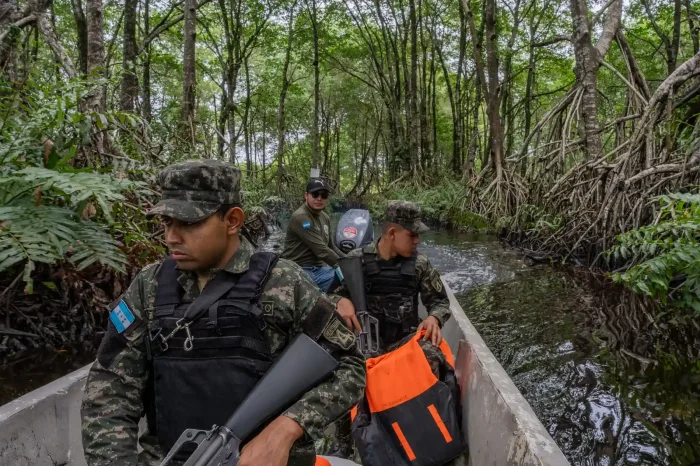In the verdant rainforests of Honduras, a silent war is unfolding. Here, in one of Central America’s most biodiverse nations, the relentless spread of oil palm plantations paints a stark picture of environmental exploitation. Honduras stands at the epicenter of a burgeoning global demand for palm oil – a commodity prized for its versatility but marred by its ecological impact.
This demand has shaped a complex narrative of economic allure versus ecological preservation, a narrative increasingly relevant as Latin America emerges as a rapid growth front for palm oil production.
Palm oil, used in food, animal feed, and as a biofuel, accounts for about 40% of the global demand for vegetable oil, amounting to approximately 210 million tons annually. Between 1995 and 2015, the annual production of palm oil quadrupled from 15.2 million tons to 62.6 million tons. Projections suggest a similar surge by 2050, with Latin America, accounting for almost 7% of global palm oil production, positioned as the fastest-growing producer. Amidst this green gold rush, a clash between profit and preservation is unfolding in Honduras, revealing a landscape altered not just physically but in the fabric of its society.
The study of Honduras’ palm oil industry is an intricate web of economic interests, environmental impacts, and the courageous efforts of those defending their land. It’s a story that speaks to the heart of a global challenge: balancing the economic benefits of palm oil with the urgent need to protect our planet’s precious ecosystems.
Being A Honduran Park Ranger Is A Dangerous Job
On a seemingly ordinary day, the 10th of September, park ranger Adonias Cruz (as seen in the featured image) was patrolling Blanca Jeannette Kawas national park in Honduras, a region plagued by illegal oil palm cultivation. His routine took a sinister turn when an armed man approached his residence, ringing his doorbell. Upon realizing Cruz wasn’t home, the intruder left a menacing death threat.
Reflecting on the incident, Cruz shares, “I’ve been on the receiving end of death threats before, particularly from community members opposed to our efforts to remove a newly established oil palm plantation in the park’s central zone. It’s chilling to think of the possible outcomes had I been in my flat that day.”
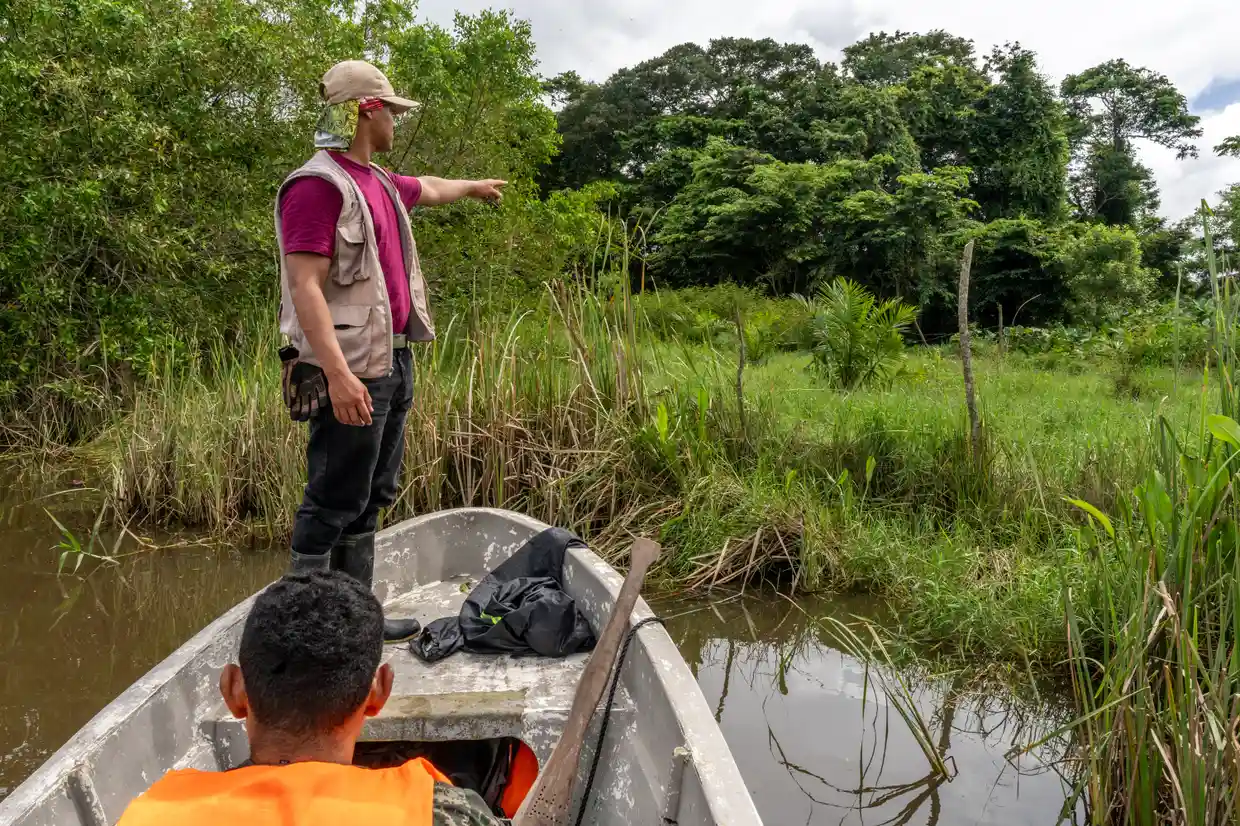
At 28 years old, Cruz is part of a small, dedicated team of four rangers tasked with the protection of Honduras’s national parks and the surveillance of unlawful oil palm crops. This role comes with immense risks, as they face opposition from groups entangled in both the palm oil business and drug trafficking, who have explicitly expressed their willingness to resort to violence.
Cruz laments the perception of their role, “To most, we’re the enemy. We might exchange pleasantries with locals, but there’s always an undercurrent of uncertainty about who might orchestrate the next attack on us.”
His colleague, 22-year-old ranger Cesar Ortega, echoes these sentiments, highlighting the constant surveillance they are under. “Our every move is tracked the moment we step out. Informants report our location and check if we’re accompanied by soldiers. We’re always under their watchful eye,” Ortega reveals.
Palm oil cultivation, propelled by its use in food, beauty products, and biofuel, has become an essential export business in Honduras. The crop’s low production costs have made it a popular alternative to traditional oils like sunflower and olive. This demand has driven a surge in production, with Latin America emerging as the fastest-growing producer, contributing almost 7% to the global output.
The boom in Honduras’s oil palm industry can be traced back to 2014, when then-President Juan Orlando Hernández invested nearly $72 million in incentives for cultivation. This initiative, however, has had dire consequences for the environment.
Pablo Flores Velásquez, a professor at the National Autonomous University of Honduras (UNAH), points out the ecological damage: “The palm oil presents a serious threat to biodiversity and water quality. As a monoculture, it necessitates the complete eradication of biodiverse areas.”
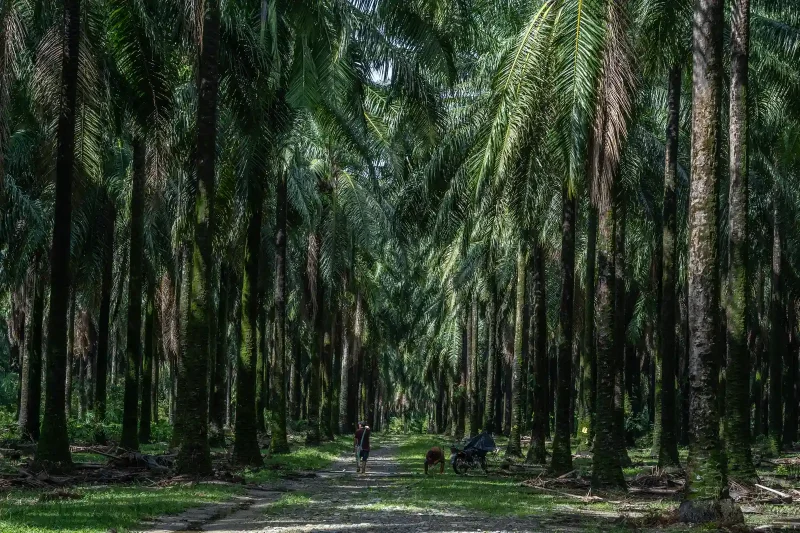
The Price of 'Green Deserts'
In Honduras, the extensive cultivation of palm oil has led to the creation of ‘green deserts,’ where biodiversity is decimated and ecosystems are paralyzed. Despite contributing nearly 4% to Honduras’s exports, the environmental cost is staggering. Six major companies dominate this production, while 60% remains in the hands of smallholders, lured by the promise of steady income.
“All one needed was the willingness to plant oil palm, and the rest was served on a plate,” points out Pablo Flores Velásquez.
Andres Cartagena, a 75-year-old former cattle farmer, has transitioned to palm oil farming. “It’s just easier money,” he explains. However, this shift represents a broader trend where traditional farming practices are replaced by monocultures, further exacerbating environmental degradation.
Narco Trafficking and Agribusiness
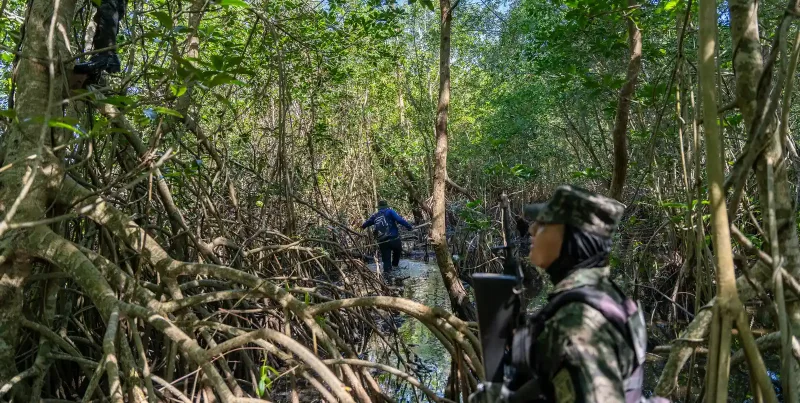
The intertwining of illegal oil palm crops with drug trafficking adds another layer of complexity. Frances Thomson, a specialist at the Centre for the Study of Illicit Economies, Violence and Development, notes, “Oil palm investments are attractive to traffickers as they offer a means to legalize income from drug trafficking and secure physical control over land.”
The spread of illegal plantations has had fatal consequences for environmental activists in Honduras and across Latin America. In 2022, 177 Latin American environmental defenders were killed, 14 of whom were in Honduras. The Blanca Jeannette Kawas national park, named after a murdered environmental activist, stands as a testament to this deadly struggle.
Nelbin Bustamante, the executive director of Prolansate, an NGO managing the park, admits the near-impossibility of eradicating illegal crops with limited resources. “We are not able to do anything more than monitor and report,” he laments, citing institutional failures and the threat of death.
How Palm Oil is Made: A Simple Guide
Palm oil production is a multistep process that transforms the fruit of the oil palm tree into the versatile oil used in numerous products. Here’s a quick breakdown of the process:
- Harvesting: The process begins with the harvesting of oil palm fruit bunches from oil palm trees. These trees start bearing fruit after 3-4 years of planting and can be harvested every 10-15 days since the fruit doesn’t ripen simultaneously.
- Transporting: Once harvested, the fruit bunches are transported to a processing mill. Speed is crucial here, as the quality of the oil can deteriorate if the fruit isn’t processed promptly.
- Sterilizing: At the mill, the first step is sterilization. The fruit bunches are cooked using steam. This process sterilizes the bunches, softens the fruit, and loosens the fruit from the bunches.
- Threshing: The sterilized fruit bunches then go through a threshing process. Here, the fruits are separated from the bunches using a rotating drum or a threshing machine.
- Digesting and Pressing: The separated fruits are then crushed and heated to further break them down. The pulp (consisting of oil, water, and solid impurities) is then pressed in a screw press, extracting the crude palm oil and a mixture of water and solids.
- Clarification and Purification: The crude oil is then sent through a clarification process, where it’s separated from the water and solids. This is often done using a centrifuge. The oil is then purified to remove any remaining impurities.
- Refining: The crude palm oil is then refined to achieve the desired quality. This involves processes like degumming (removing gums), bleaching (removing color), and deodorizing (removing odor).
- Fractionation (Optional): Finally, the oil can undergo fractionation, where it’s separated into solid and liquid fractions. This process is used to create different types of products, such as cooking oil or ingredients for processed foods.
The finished product, palm oil, is then packaged and shipped for use in a wide range of products, from food items to cosmetics and biofuels.
Corruption, Institutional Failure and The Green Battalion
The pervasive corruption in Honduras exacerbates the problem. Conflicts of interest among public officials, including prosecutors, hinder legal actions against environmental destruction. A Tela prosecutor, speaking anonymously, confirms this, noting the challenges in building legal cases against environmental crimes.
In December 2022, the Honduran government, under President Xiomara Castro, took a significant step towards environmental protection by establishing the Third Brigade for Environmental Protection, commonly known as the Green Battalion. This specialized unit was created with the primary mission of safeguarding the nation’s natural resources, combating illegal deforestation, and supporting conservation efforts in collaboration with various NGOs. Unfortunately, logistical challenges have limited its effectiveness. “It has not been such a great success,” Bustamante observes.
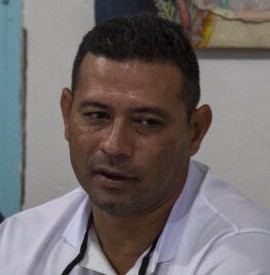
But the new Green Battalion has had one success worth boasting about: their involvement in curbing illegal oil palm cultivation in sensitive ecological zones. The Battalion collaborated with NGOs like Prolansate to identify and act swiftly against unauthorized plantations. Granted, the challenges they face are considerable. They’re expected to cover vast areas, and they’re going up against established and sophisticated crime networks.
For the most part, the Green Battalion’s operations have focused on patrolling national parks, reserves, and areas prone to illegal activities such as deforestation and wildlife trafficking. Most agree that their presence has been a deterrent to illegal activities in protected areas.
Instances of successful interventions by the Green Battalion have been reported, where their actions have led to the prevention of illegal logging and the apprehension of individuals involved in environmental crimes.
Like with most government initiatives, the Green Battalion’s effectiveness hinges entirely on receiving adequate support in terms of funding, training, and logistics. Right now, the Honduran government’s commitment to environmental protection through this initiative is a positive step, but for lasting impact, continuous investment and international cooperation needs to happen sooner rather than later.
More To Discover
- The Hidden Shadow Network Behind Deforestation in Indonesia’s Palm Oil Industry
- Palm Oil-Based Organic Solution Can Protect Cattle from Pests Without Insecticides
- Chinese Public Companies Exploiting Endangered Species in Medicine Production
- Indonesia Imposes $310M in Fines on Palm Oil Companies for Illegal Forest Operations
Conclusion
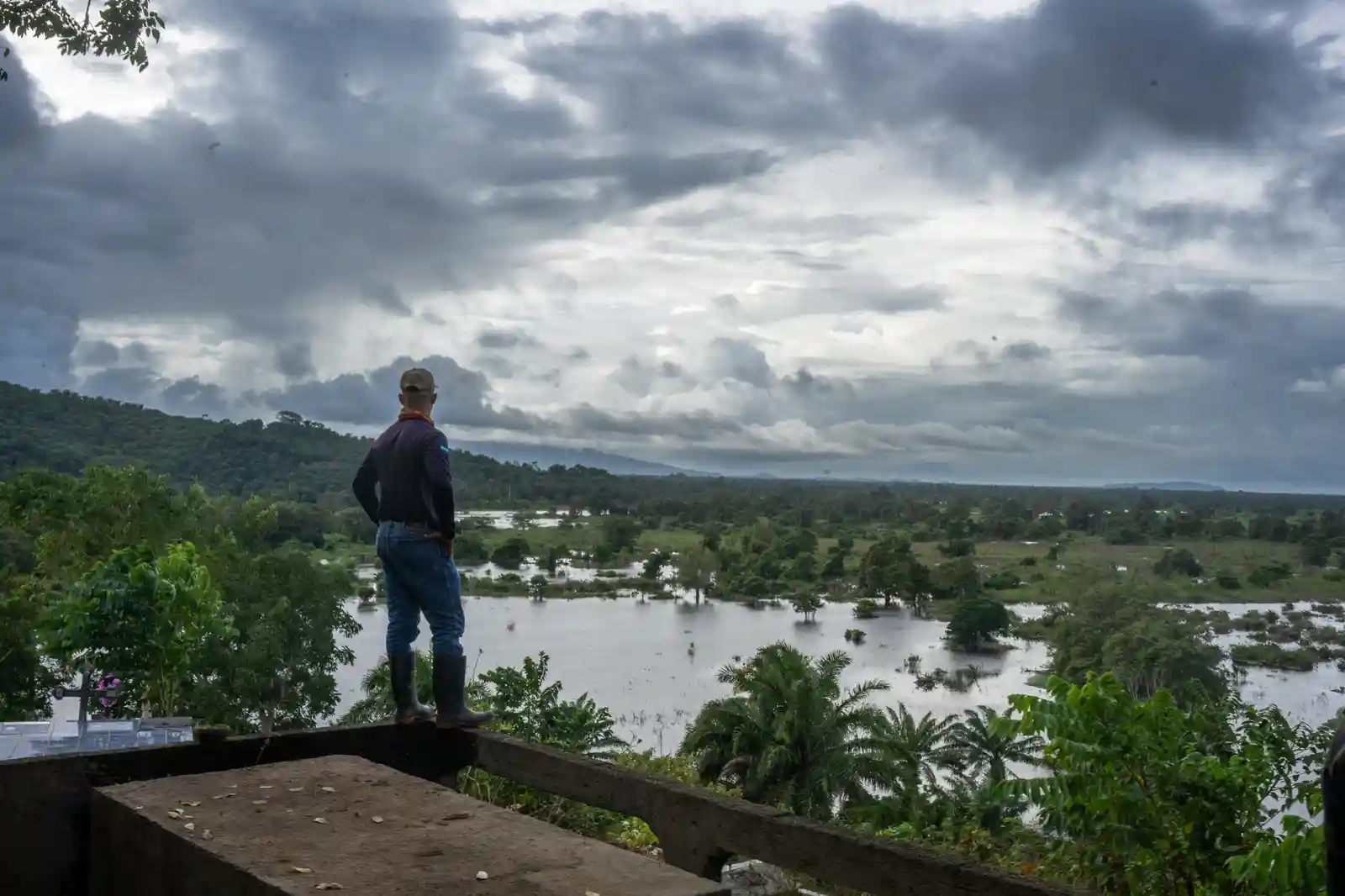
No one is denying the fact that the world needs palm oil, at least until other more sustainable options become available on a mass scale, but the struggle against illegal oil palm plantations in Honduras reveals a complex web of environmental destruction, corruption, and human rights violations. What Honduras is experiencing right now relating to palm oil is unfortunately far from new. The struggle to meet the world’s demand often brings out crime and violence from the avocado trade to Indonesia’s palm oil problem and even Unilever’s other big public relations nightmare, plastic sachet-based pollution.
As global demand for palm oil continues to rise, the need for sustainable practices and robust legal frameworks becomes ever more urgent. Honduras’s park rangers, fighting against overwhelming odds, is a great way to sum up the global impact of our consumption choices and the dire need for change.







